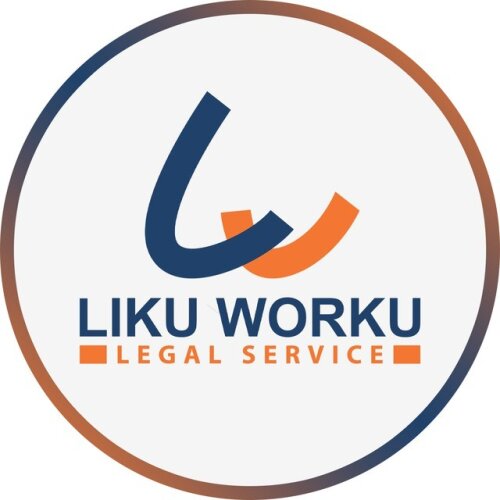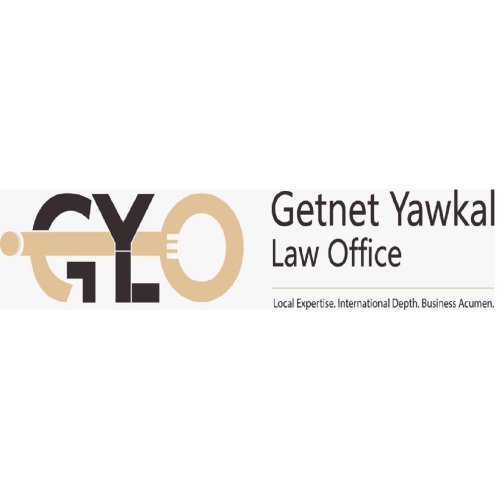Best Corporate & Commercial Lawyers in Ethiopia
Share your needs with us, get contacted by law firms.
Free. Takes 2 min.
Or refine your search by selecting a city:
List of the best lawyers in Ethiopia
About Corporate & Commercial Law in Ethiopia
Corporate and commercial law in Ethiopia covers the legal rules, regulations, and practices that shape how businesses are formed, operated, managed, and dissolved within the country. These laws provide the foundation for all types of business entities, regulate commercial transactions, protect business interests, and ensure transparency and fairness in the market. Ethiopia’s ongoing economic reforms, accompanied by revisions to existing commercial codes and the introduction of new laws, place significant focus on attracting investment, modernizing commercial practices, and promoting economic growth.
Why You May Need a Lawyer
There are numerous situations in which individuals and businesses may need legal advice or representation in the field of corporate and commercial law in Ethiopia. Common reasons include:
- Registering or incorporating a new business, such as a private limited company or a share company
- Drafting, reviewing, or negotiating commercial contracts
- Handling mergers, acquisitions, or joint ventures
- Dealing with regulatory compliance, such as trade licensing, tax obligations, or labor requirements
- Protecting intellectual property rights, including trademarks and patents
- Resolving business disputes and commercial litigation or arbitration
- Liquidation, restructuring, or dissolution of businesses
- Advising on foreign investment and cross-border transactions
- Interpreting new commercial codes and implications for existing practices
Local Laws Overview
Ethiopia’s primary laws governing corporate and commercial activities include the Commercial Code of 2021, the Investment Proclamation, and numerous regulations relating to specific sectors. Key aspects to be aware of are:
- Business entity forms: The new Commercial Code provides for several business entities, including sole proprietorships, private limited companies (PLC), share companies, and partnerships. Requirements for capital, management structure, and registration vary by entity type.
- Company registration: Registration with the Ministry of Trade and Regional Integration is required for most business activities. Updated procedures aim to streamline the process for both domestic and foreign investors.
- Contracts: Ethiopian law requires certain contracts to be in writing, and commercial practices are guided by both the Civil Code and the new Commercial Code.
- Foreign investment: Foreign investors are subject to sector-specific regulations, minimum capital requirements, and must comply with licensing rules. Some sectors remain reserved for domestic investors.
- Taxation: Business operations are subject to taxes such as value added tax (VAT), corporate income tax, and others as set by the Ethiopian Revenue and Customs Authority (ERCA).
- Dispute resolution: Business disputes can be resolved through local courts or, in some cases, through arbitration as provided in commercial contracts or legal provisions.
- Intellectual property: The Ethiopian Intellectual Property Authority oversees registration and enforcement of IP rights. Protection is important for brands, inventions, and creative works.
Frequently Asked Questions
What types of business entities can I register in Ethiopia?
You can register as a sole proprietorship, general partnership, private limited company (PLC), share company, or other partnership structures as set out in the Commercial Code of 2021.
What are the minimum capital requirements to start a company?
Minimum capital requirements depend on the business entity you choose. For example, a PLC must have at least 15,000 Ethiopian Birr in capital. Foreign investors may be subject to different minimum capital conditions.
What documents are required for company registration?
Typical requirements include identification documents, a memorandum and articles of association, proof of registered office address, bank statements showing deposited capital, and tax registration certificates.
Can foreign investors fully own a company in Ethiopia?
Foreigners can own companies in certain sectors, but some areas are reserved for Ethiopian nationals or require joint ventures. Always check the latest investment regulations for sector-specific rules.
What are the common taxes for businesses in Ethiopia?
Businesses are generally required to pay corporate income tax, value added tax (VAT), withholding tax, and sometimes excise and customs duties, depending on operations.
How are commercial disputes resolved in Ethiopia?
Most commercial disputes are resolved through Ethiopian courts, but parties may also choose arbitration if agreed upon in their contracts or if allowed by law.
How do I protect my trademark or patent in Ethiopia?
Registration with the Ethiopian Intellectual Property Authority is necessary to secure legal protection for trademarks, patents, copyrights, and related intellectual property.
What labor laws must businesses comply with?
Businesses must comply with the Ethiopian Labor Proclamation, which covers employment contracts, working hours, benefits, dispute resolution, and occupational safety.
Can I draft contracts in a foreign language?
Contracts may be drafted in foreign languages, but an official Amharic version or an authenticated translation may be required, especially for use in legal proceedings.
What are the reporting requirements for companies?
Companies must maintain proper accounting records, file annual tax returns, and submit annual financial statements to relevant authorities, as specified by law.
Additional Resources
When seeking legal advice or further information about corporate and commercial matters in Ethiopia, the following resources may be helpful:
- Ministry of Trade and Regional Integration (MoTRI) - Oversees business registration, licensing, and trade regulations.
- Ethiopian Investment Commission (EIC) - Provides information and support for foreign and local investors.
- Federal Document Authentication and Registration Agency (FDARA) - Handles authentication and registration of commercial legal documents.
- Ethiopian Intellectual Property Authority (EIPA) - Manages intellectual property rights registration and enforcement.
- Ethiopian Revenue and Customs Authority (ERCA) - Administers tax registration and compliance for businesses operating in Ethiopia.
- Chambers of Commerce and Sectoral Associations - Offers business networking, information, and support services.
- Local law firms and legal consultancies - Professionals specialized in Ethiopian corporate and commercial law.
Next Steps
If you require legal assistance in corporate and commercial law in Ethiopia, follow these steps to protect your interests and ensure legal compliance:
- Identify the specific legal issue or type of assistance you need, such as company formation, contract review, or regulatory compliance.
- Gather relevant documents, information, and background details to share with your legal advisor.
- Consult with a qualified lawyer or legal consultancy experienced in Ethiopian corporate and commercial matters.
- Review and follow all legal requirements, such as registration or licensing, before engaging in business activities.
- Stay updated with changes in laws and regulations that may affect your business.
Taking these steps early can help avoid complications and ensure your business activities are structured for long-term success in Ethiopia.
Lawzana helps you find the best lawyers and law firms in Ethiopia through a curated and pre-screened list of qualified legal professionals. Our platform offers rankings and detailed profiles of attorneys and law firms, allowing you to compare based on practice areas, including Corporate & Commercial, experience, and client feedback.
Each profile includes a description of the firm's areas of practice, client reviews, team members and partners, year of establishment, spoken languages, office locations, contact information, social media presence, and any published articles or resources. Most firms on our platform speak English and are experienced in both local and international legal matters.
Get a quote from top-rated law firms in Ethiopia — quickly, securely, and without unnecessary hassle.
Disclaimer:
The information provided on this page is for general informational purposes only and does not constitute legal advice. While we strive to ensure the accuracy and relevance of the content, legal information may change over time, and interpretations of the law can vary. You should always consult with a qualified legal professional for advice specific to your situation.
We disclaim all liability for actions taken or not taken based on the content of this page. If you believe any information is incorrect or outdated, please contact us, and we will review and update it where appropriate.
Browse corporate & commercial law firms by service in Ethiopia
Ethiopia Attorneys in related practice areas.
Browse corporate & commercial law firms by city in Ethiopia
Refine your search by selecting a city.

















